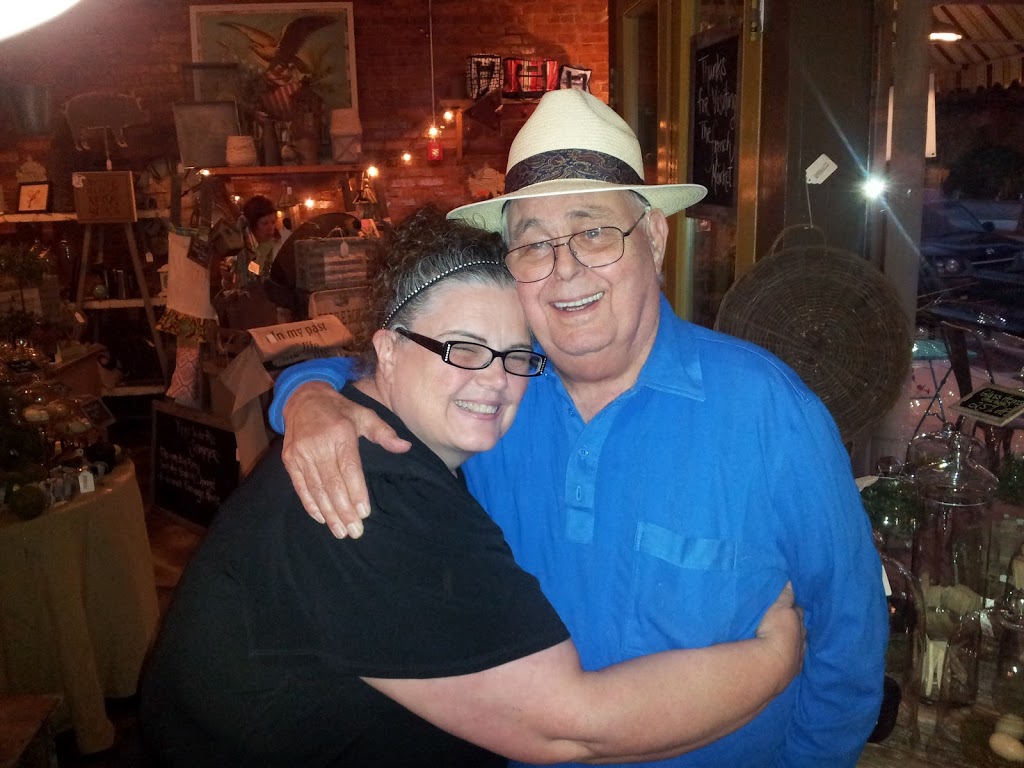Words satisfy the mind as much as fruit does the stomach;good talk is as gratifying as a good harvest.
Words kill, words give life;
they’re either poison or fruit—you choose.”–Proverbs 18:21 (The Message)
As the writer of Proverbs so aptly put it, words can give you strength or make you sick.Another translation puts this verse even more succinctly:“there is death and life in the power of the tongue.”– (KJV)
Think about it.
What is your fondest memory? Who was part of that memory? And what kind of words did they speak to you?
For me, it was my grandfather: a happy, faith-filled man who showered me with unconditional love and affirmation. In the negativity of my childhood, my grandfather was a bright, positive force. His strong hugs, jovial laughs, and words of kindness soothed my spirit. He made me feel good about myself then – and he still does now.

Me My Grandfather
Naturally, I am drawn to him.Who wouldn’t be? We all have an innate desire to be loved.When we have someone who will share their love with us, we thrive.
Yet there is so much unkindness in the world. So many hurtful words uttered; so much belittling done. So much anger spewed out.
The news media reports almost daily of somebody somewhere who has been abused or battered by someone that was supposed to love them, care for them, provide for them.
Why is that?Why do people hurt each other?
The short answer is because hurting people hurt others.
The long answer can be found in the following excerpt fromwww.mentalhelp.com
Why Do People Abuse?
The first question, “Why do people abuse other people?” has multiple answers. Some abusers learned to abuse from their parents. Their early history consisted of receiving abuse themselves and/or seeing others abused (one parent abusing the other or their sibling, etc.). As a consequence, abuse is the normal condition of life for these people. Such people internalized a particular relationship dynamic, namely the complementary roles of “abuser” and “victim”. They are familiar with and fully understand the terror of being the helpless victim from their own childhood experience. The opposite of being a victim is not simply opting out of abuse; it is instead, to be abusive. Given the choice between being the out-of-control victim, or the in-control abuser, some of these people grow up to prefer the role of the abuser. As they become adults, they simply turn this relationship dynamic around and start acting out the “abuser” side of the relationship dynamic they have learned. By choosing to be the aggressor and abuser, they may get their first sense of taking control over their own destiny and not being at the mercy of others. That they hurt others in the process may go unregistered or only occur as a dim part of their awareness.
Of course, there are many types of abuse with varying degrees of intensity.But for the purpose of this discussion, let’s consider the words that were spoken into our life growing up – and the words we speak into the lives of others.
Growing Up
Whose words influenced you the most as a child?Think about that person.Was their overall impact on you positive or negative?
For me, it was mostly negative. There were good times and good memories but they are overshadowed by the all too frequent burst of anger and belittlement.
To this day, some 45 years later, whenever I see this person there is a part of me that holds my breath and hopes that we can have a healthy exchange of words that are sincere and uplifting. As of this writing and with the help and grace of Christ, we are getting there.
What Jesus Says
Proverbs 18 told us that our words bring life or death, but the Holy Bible also tells us that we will give an account to God for every word we ever uttered:
But I say unto you, That every idle word that men shall speak, they shall give account thereof in the day of judgment.(Matthew 12:36)
I like the way The Message translation explains this same full passage:
“You have minds like a snake pit! How do you suppose what you say is worth anything when you are so foul-minded? It’s your heart, not the dictionary that gives meaning to your words. A good person produces good deeds and words season after season. An evil person is a blight on the orchard. Let me tell you something: Every one of these careless words is going to come back to haunt you. There will be a time of Reckoning. Words are powerful; take them seriously. Words can be your salvation. Words can also be your damnation.”(Matthew 12:35-37)
The Words We Speak Now
So according to the scripture, every word we speak will one day be judged by God.
That means…
…Every hurtful word we’ve uttered.
…Every word that built someone up.
…Every word that tore someone down.
…Every word that expressed appreciation.
…Every word that deflated another’s sense of self.
The words we’ve spoken and the words that have been spoken to us are on epitaphs, in books, and in the recesses of ourminds.
They echo back to us from our childhood, and they frame the adults we are today.
So choose your words wisely. Consider the effect they will have now and in the future. Your eternal destiny may depend on it.
Prologue
The pictures featured in this post are of me and my friend. She gave me the crazy pink duct tape as a fun reminder that I had the power through Christ to shut the devil’s mouth should he try to influence anyone to verbally abuse me.
The tape has served me well; and, as you can see, we had quite a bit of fun with it.
I write a lot about the power of words mostly because I know what it feels like to be damaged by them. But also because since I have been magnificently filled with the Holy Spirit (Acts 2), I have learned to speak words of affirmation to others and have seen first-hand how joyously they respond.
Comments
lease tell me about how the words of others have affected your life. Your contribution is what makes this blog thrive!

